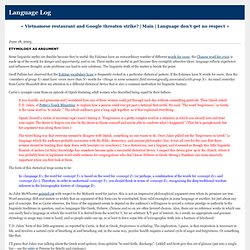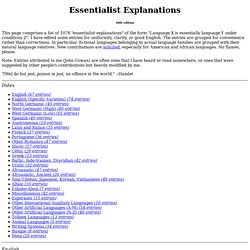

5 Tiny Wording Tricks That Can Totally Change Someone's Mind. We all know that language can affect our behavior.

For example, chances are you would react much differently to hearing "Aww, wook at da fuzzy widdle bumblebee! " than you would to "OH MY GOD THERE'S A BEE ON YOUR FACE! RIGHT ON IT! " But language can manipulate you in ways much more subtle than that, and trust us, marketers know it very well. That's why ... #5. Photos.com Here's a little question for you to ponder: When's the last time you heard someone's boner deficiency syndrome referred to as "impotence"? Photos.comBecause doctors get paid by the syllable? So What's Going on Here? The pharmaceutical industry is fond of taking conditions that were once considered a normal (if annoying) part of life and encouraging the use of their clinical names. But this psychological effect also works the other way around: Some diseases currently don't sound serious enough to our easily manipulated brains. Photos.com"Facial pus explosion" opens a lot more doors than "acne.
" #4. . #3. Etymology as argument. Etymology as argument Some linguistic myths are durable because they're useful: the Eskimos have an extraordinary number of different words for snow; the Chinese word for crisis is made up of the words for danger and opportunity; and so on.

These myths are useful in part because they exemplify attractive ideas: language reflects experience and influences thought; acute problems can lead to new solutions. The linguistic truth of the matter is beside the point. Geoff Pullum has observed that the Eskimo vocabulary hoax is frequently evoked in a particular rhetorical pattern: If the Eskimos have N words for snow, then the <members of group X> must have <even more than N> words for <things in some semantic field stereotypically associated with group X>.
An email yesterday from Carrie Shanafelt drew my attention to a different rhetorical device that is also a common motivation for linguistic fantasy. The form of this rhetorical trope seems to be: T.D. Essentialist Explanations. 16th edition This page comprises a list of 1078 "essentialist explanations" of the form "Language X is essentially language Y under conditions Z".

I have edited some entries for uniformity, clarity, or good English. The entries are grouped for convenience rather than correctness. In particular, fictional languages belonging to actual language families are grouped with their natural language relatives. New contributions are solicited, especially for American and African languages. The guide to languages, alphabets and other writing systems. Stæfcræft & Vyākaraṇa: "Oh, no, maadarcho-": On subtitling vulgarities in Hindi films. John McWhorter, in his recent New Republic article, "Gosh, Golly, Gee: Mitt Romney's verbal stylings", discusses what he appears to view as Romney's over-sanitised style of public speaking as a marker of inauthenticity.

Lucy Ferriss, in her post "Jeepers! " on the Lingua Franca site, is somewhat sceptical of this argument. However, what struck me in Ferriss's post was the following paragraph, because it touches on something I was pondering a couple of days ago. It is certainly true, as McWhorter observes, that public discourse has grown more casual and that examples of “taking the name of the Lord in vain” are not so proscribed as they once were. I only became aware of my own habitual use, not only of various expletives involving Judeo-Christian names for the deity, but of designated euphemisms, when I was in Pakistan recently. What is even more amusing is that this bowdlerised subtitling extends to subtitling English as well.
Swearing: Very much lost in translation. Learn Tamil through English - Lesson 1 - Basics.